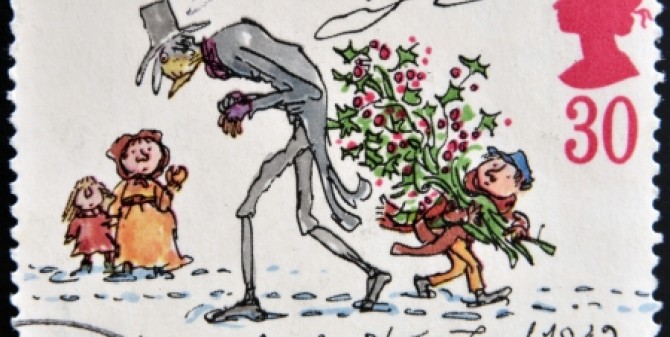What can Scrooge teach us about Financial Planning?

Charles Dickens ‘A Christmas Carol’ is a firm favourite in the KDW office and we are not alone, the story has been adapted a whopping 20 times for films and 28 times for TV; with the most recent adaptation a 3-D spectacular from Walt Disney starring Jim Carrey as Ebenezer Scrooge.
Scrooge is portrayed as a ‘stingy’ and ‘miserable’ character and while these aren’t characteristics that any of us would desire there are some valuable financial planning lessons that we can learn from ‘A Christmas Carol’ and Scrooge himself!
The Ghost of Christmas Past
The first of the three spirits to visit Scrooge is the Ghost of Christmas Past who shows Scrooge scenes from previous Christmases to highlight the necessity of changing his ways.
While we aren’t going to be visited by the Ghost of Christmas past we can take some time over the festive break to reflect on our previous financial decisions to see what has worked well for us and what hasn’t; could we have paid more into our pensions or could we have taken more of a risk with our investment portfolio?
Scrooge was visited by his late business partner who had been condemned to wander the earth as a chained and tormented ghost as punishment for being selfish and greedy, giving Scrooge an insight into what his future may hold. In the same vain we can look to our friends and family to learn from their past financial successes and mistakes.
The Ghost of Christmas Present
The second ghost to visit Scrooge was the Ghost of Christmas Present, showing Scrooge various Christmas scenes taking place that particular Christmas highlighting how much less fortunate some people were compared to Scrooge.
This Christmas take a moment to see if you are able to give anything back to your local community from volunteering your time or skills to a local charity or making a donation to your charity of choice.
Another vital lesson we can apply to our finances is Scrooge’s saving skills. While he may take his penny pinching too far with living in the dark and eating basic food from the pan he has the right idea of not living beyond your means and keeping his finances in check by tracking everything he spends.
As another Charles Dickens’s character Wilkins Micawber from David Copperfield declares,
“Annual income twenty pounds, annual expenditure nineteen pounds nineteen and six, result happiness.
Annual income twenty pounds, annual expenditure twenty pounds nought and six, result misery.”
This quote from David Copperfield has become known as the Micawber Principle and underpins any financial advice. If you always spend less than you earn you will be able to save and ultimately be happy whereas spending more than you earn will lead to financial misery and have a negative impact on other aspects of your life.
The Ghost of Christmases yet to come
The final ghost to visit Scrooge is the Ghost of Christmases yet to come, who shows Scrooge future Christmases to come and what Scrooge’s future holds if he continues to live his life the way he is currently living.
For some of us retirement seems like a long way off so we don’t contribute much to our pensions and instead spend more money on living in the now and indulging in luxuries that have a short term benefit. It is important to think of the future and the kind of life you want in retirement and save accordingly.
If however you feel like retirement is fast approaching and you aren’t as prepared as you would like to be then you shouldn’t bury your head in the sand. Instead like Scrooge you should realise that it is not too late to change your habits. After being visited by all three ghosts Scrooge vows to ‘not shut out the lessons that they teach’.
So this Christmas when thinking about your financial planning goals for 2018 ask yourself ‘what would Scrooge do?’
